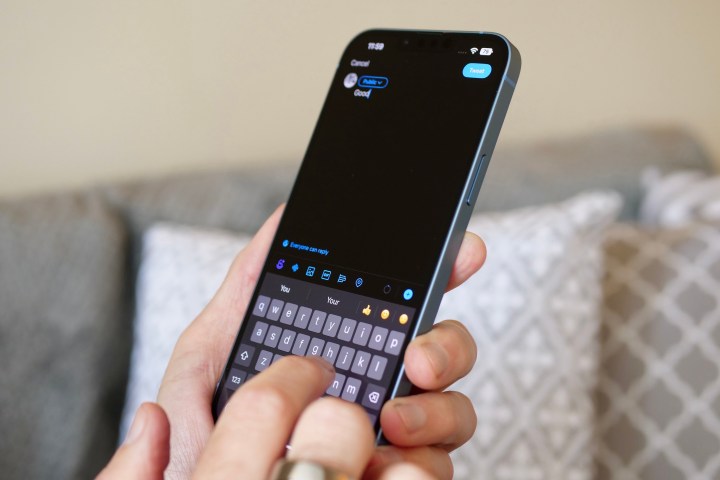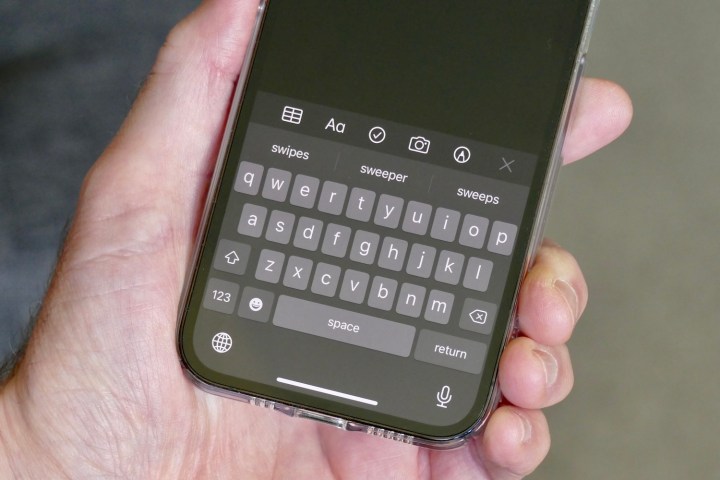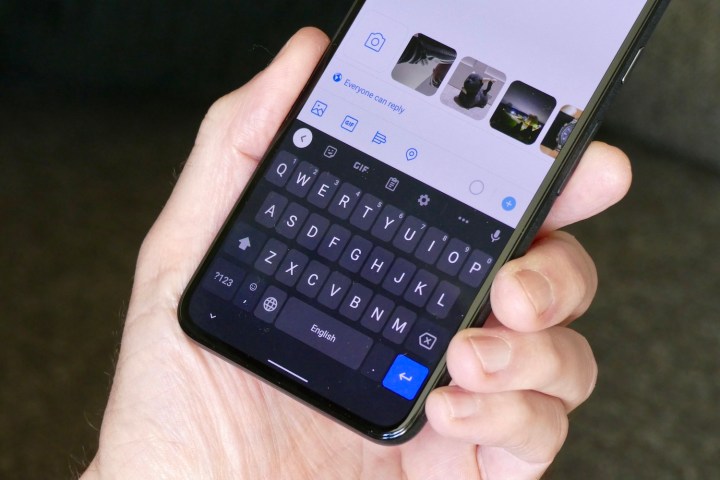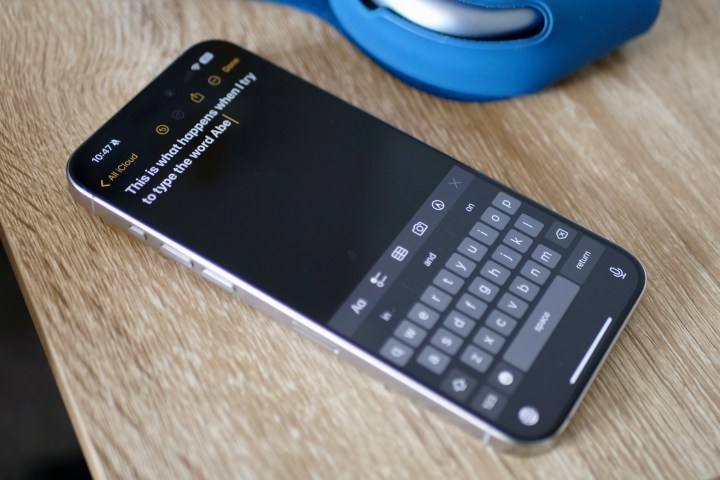Abe, Ann, Anne, Anna, Ana, Ave, AB’s. These words are constantly auto-corrected on my iPhone when I’m trying to type “and.” It happens so frequently that it’s becoming frustrating, almost like my phone is trying to play a prank on me.
As a fan of the iOS keyboard, this issue is pushing me to consider making a significant change unless Apple addresses it.
It’s always the word ‘and’

Swipe typing is usually efficient on a touchscreen, except when the phone misinterprets the intended word, disrupting the flow as you correct it. This constant correction slows down the typing process and can be quite irritating.
The word “and” is consistently misinterpreted by my iPhone, a persistent issue that has been ongoing regardless of iOS updates. While the standard iOS keyboard performs well in other instances, this particular error persists.
Despite providing examples of other words suggested instead of “and,” it’s predominantly fixed on suggesting “Abe.” I have never intentionally typed “Abe,” making the auto-correct even more perplexing.
Context plays a significant role in these corrections. For instance, the phone may misinterpret a sentence like “I’m going to buy potatoes Abe…” instead of “I’m going to buy potatoes and a steak.” This consistent error highlights the frustration of the auto-correct feature.
Surely I’m exaggerating?

While the issue may seem exaggerated, the consistent misinterpretation of “and” is noticeable enough to become a frequent annoyance that requires correction. The root cause of this issue remains unclear.
Notably, this problem mainly affects swipe typing and not traditional tap typing. However, the inconsistency persists across applications, pointing to the iOS keyboard as the likely culprit.
There is a possibility that my swift swiping technique contributes to the errors, but conscious efforts to type “and” directly yield better accuracy. Yet, the persistent suggestions of “Abe” continue to plague the typing experience, likely a combined result of user error and predictive text technology.
What can I do about Abe?

This peculiar issue with auto-correct may be unique, but it raises the question of how many others face similar word blindness on their iPhones. While the specific word may vary, the frustration remains consistent.
Apple’s touted language model enhancements in iOS 17 offer little respite, failing to address basic auto-correct issues like consistently fixing “and” to “Abe.” Switching to an alternative keyboard poses its challenges, with the potential for accidental changes adding to the inconvenience.
Exploring Gboard on Android showcases a stark contrast in accuracy, but transitioning to Gboard on iOS necessitates training the keyboard from scratch, a time-consuming process compared to correcting “Abe” to “and.”
Please, let AI come to my rescue

In envisioning a solution, AI emerges as a potential game-changer in addressing this persistent auto-correct issue plaguing iPhone users. Rather than focusing on niche AI features, directing resources towards refining the keyboard’s predictive text system could alleviate such common annoyances.
By leveraging AI’s capabilities to interpret user input and context accurately, future iterations of iOS could potentially rectify the “Abe” dilemma by understanding user intent better, enhancing overall typing experiences.
With a hope for a seamless typing experience, AI intervention offers a promising pathway to resolving recurrent auto-correct frustrations and mitigating confusion over unintentional word replacements like “Abe.”
Editors’ Recommendations


